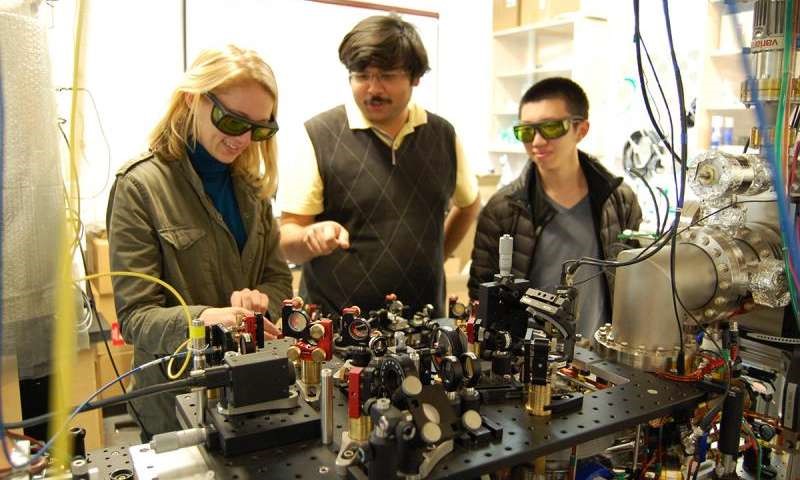
Physicists at Cornell University have just thrown a wrench into our supposed understanding of quantum mechanics by verifying the Zeno effect, the notion that a system cannot change while it’s being observed. Their findings may someday revolutionize the ability to control and manipulate the quantum states of atoms, leading to a new generation of sensors.
The groundbreaking experiment was performed by students Yogesh Patil and Srivatsan K. Chakram in the Ultracold Lab, Cornell’s first setup designed to allow the studying of materials cooled to temperatures as low as .000000001 degree above absolute zero.
The findings were published in the Oct. 2 issue of the journal Physical Review Letters and describe how the physicists created and cooled a gas of about a billion Rubidium atoms inside a vacuum chamber before suspending its mass between laser beams. This allowed the atoms to arrange in an orderly lattice as if they were placed in a crystalline solid, but because the experiment occurred as such low temperatures, the atoms were able to “tunnel” from place to place within the lattice.
Here’s where things veer on the arcane. The Heisenberg Uncertainty Principle states that you can never know both the speed and position of an object because everything in the universe behaves like both a wave and particle, in other words, the two interact. But because temperature is a measure of the particle’s motion, and velocity is almost zero at such extremely cold temperatures, a great deal of flexibility is given to the atom’s position in lattice.
What the researchers observed was that the quantum tunneling effect could be suppressed by simply observing the atoms. This was the first observation of the Quantum Zeno effect made by real space measurement of atomic motion, explained Mukund Vengalattore, the assistant professor of physics who established the Ultracold Lab. “Also, due to the high degree of control we've been able to demonstrate in our experiments, we can gradually 'tune' the manner in which we observe these atoms. Using this tuning, we've also been able to demonstrate an effect called 'emergent classicality' in this quantum system.” Previous experiments demonstrated the Zeno Effect with the “spins of subatomic particles,” but never like this.
“We now have the unique ability to control quantum dynamics purely by observation.” The feat was accomplished by illuminating the atoms with an additional imaging laser in order to make them fluoresce and allow a microscope to capture the flashes of light. Whenever the laser was removed or briefly turned off, the atoms tunneled freely, yet as the imaging beam was made bright and the measurements more frequently, the tunneled reduced drastically.
Figuratively speaking, the discovery reinforces the notion that watching a pot makes the water take longer to boil.
Source: Cornell.edu
Advertisement
Learn more about Electronic Products Magazine





